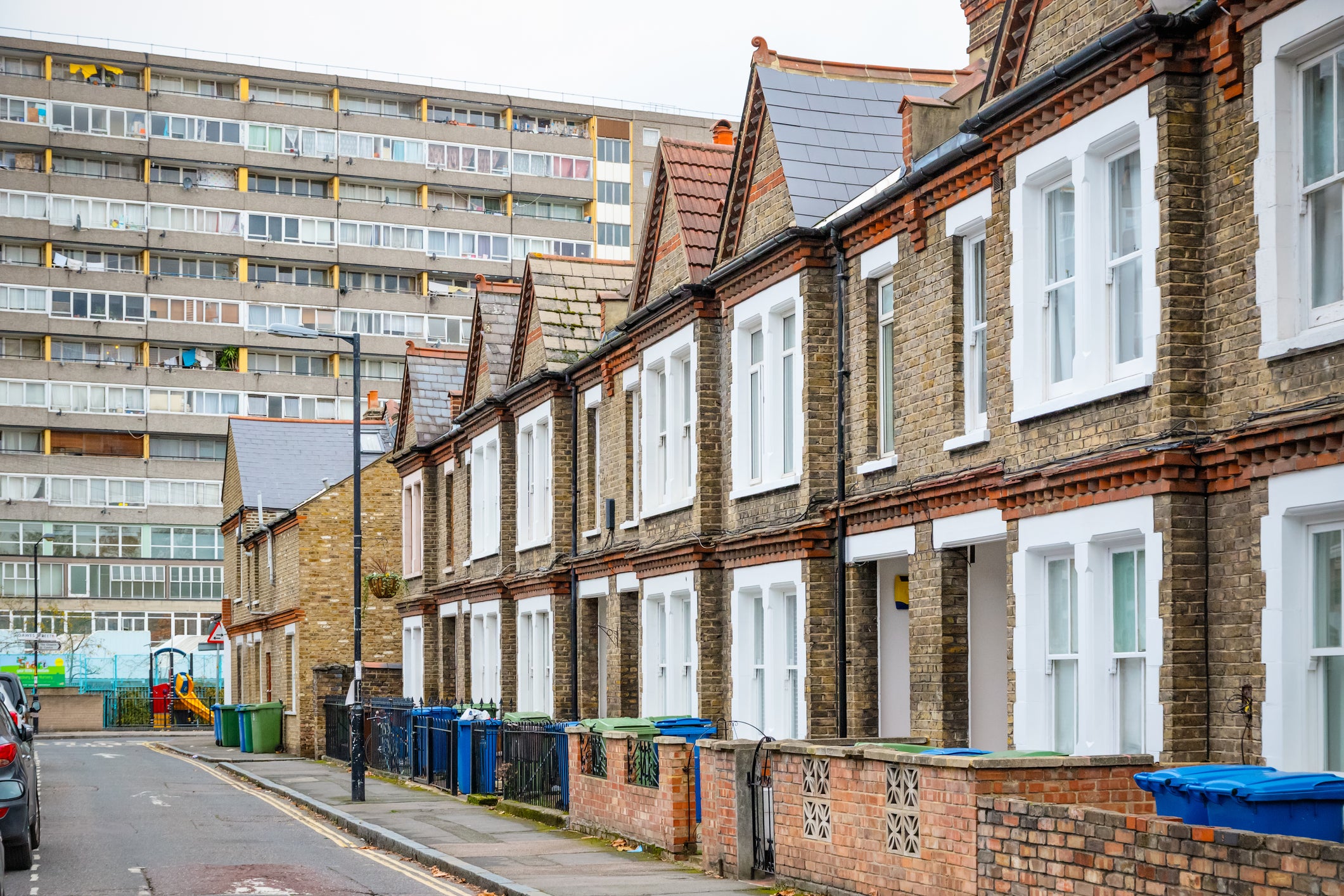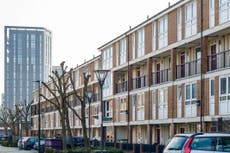Renters demand government replace ‘fake’ Covid eviction ban with the real thing
Some tenants in England are facing posession hearings this week because of new loopholes

Your support helps us to tell the story
From reproductive rights to climate change to Big Tech, The Independent is on the ground when the story is developing. Whether it's investigating the financials of Elon Musk's pro-Trump PAC or producing our latest documentary, 'The A Word', which shines a light on the American women fighting for reproductive rights, we know how important it is to parse out the facts from the messaging.
At such a critical moment in US history, we need reporters on the ground. Your donation allows us to keep sending journalists to speak to both sides of the story.
The Independent is trusted by Americans across the entire political spectrum. And unlike many other quality news outlets, we choose not to lock Americans out of our reporting and analysis with paywalls. We believe quality journalism should be available to everyone, paid for by those who can afford it.
Your support makes all the difference.The housing secretary has been accused of running a "fake eviction ban" after it emerged some tenants are still being hauled in front of courts and threatened with homelessness because of missed rent.
Robert Jenrick promised in March that nobody who lost income because of the pandemic would be forced out of their home – and imposed a ban on evictions to stop people being put on the streets during lockdown.
But last month The Independent revealed that new loopholes had been quietly introduced that will allow landlords to make homeless those hit the very hardest by the pandemic.
Following lobbying by landlord groups, ministers changed the rules during the January lockdown so that bailiffs can evict anyone who has been unable to pay rent for six months.
The previous version of the ban allowed tenants to be evicted if they already had nine moths of arrears, but crucially only if it had been built up before the start of the pandemic – to comply with Mr Jenrick's promise.
"This new fake evictions ban allows landlords to send in the bailiffs and kick tenants out of their homes in the middle of a pandemic," the London Renters Union (LRU) wrote in a letter to Mr Jenrick shared with The Independent.
"Many of our members were up to date with their rent payments before the start of the pandemic. But just like another 800,000 renters around the country they have lost income since March 2020, fallen into rent debt, and are now at immediate risk of being evicted.
"Many people in this situation have possession hearings this month and, thanks to your rule change, they could be made homeless in a matter of weeks."
The government extended its eviction ban at the last minute in early January, when it introduced the exemptions – but only until 22 February, when ministers will have to decide whether to extend it again.
This new fake evictions ban allows landlords to send in the bailiffs and kick tenants out of their homes in the middle of a pandemic
Some renters hit by the new loopholes already have possession hearings scheduled for next week, despite the country being in a national lockdown.
Victor Yuan, a tenant from east London who is a member of the union, told The Independent: "I lost my job in the theatre industry at the start of the pandemic. When I told my landlord I couldn’t afford rent, he responded by threatening me, changing the locks on my property and cutting off the electricity.
"I managed to get back in to my home with support of the London Renters Union, but of course I still can't make the rent. I have No Recourse to Public Funds, so the homelessness team at the council has refused to help me - not that they have much capacity to help anyone.
"Now the Government’s latest rule change means that I’ve got to go to court next week for a possession hearing. My doctor has prescribed me long-term medication because of the impact the stress has had on my mental health. If I lose the court case, there’s nothing to stop a bailiff evicting me from my home.

"The Government says they’re keeping renters safe but that’s clearly untrue - I could be made homeless next week."
The LRU says the full eviction ban should be reinstated by amending the Housing Act, that rent debt should be written off, and that the government should hold to its commitment to abolish section 21 evictions and introduce rent controls.
The charity Citizens Advice estimates that around half a million tenants are in arrears, with the average amount owed being £730.
The eviction ban policy only applies to England because housing is a devolved issue in Wales, Scotland, and Northern Ireland. In Wales and Scotland separate eviction bans are expected to run until the end of March, and in Northern Ireland, rules requiring landlords to give 12 weeks notice before moving to eviction proceedings have also been extended to March.
Labour has already called for the ban to be extended in England.
The government says it has put in place support for businesses to pay staff salaries and strengthened the welfare safety net since the start of the pandemic.
A spokesperson for the ministry of housing, communities, and local government said: “The Government has put in place unprecedented financial support to help renters during the pandemic, including furlough and strengthening the welfare safety net with billions of pounds.
“Last year we introduced a six month ban on evictions as well as six-month notice periods. A ban on enforcing evictions remains in place in all but the most serious circumstances such as anti-social behaviour or fraud.
“We always said that these measures would be kept under review and will provide more details as soon as possible.”



Join our commenting forum
Join thought-provoking conversations, follow other Independent readers and see their replies
Comments